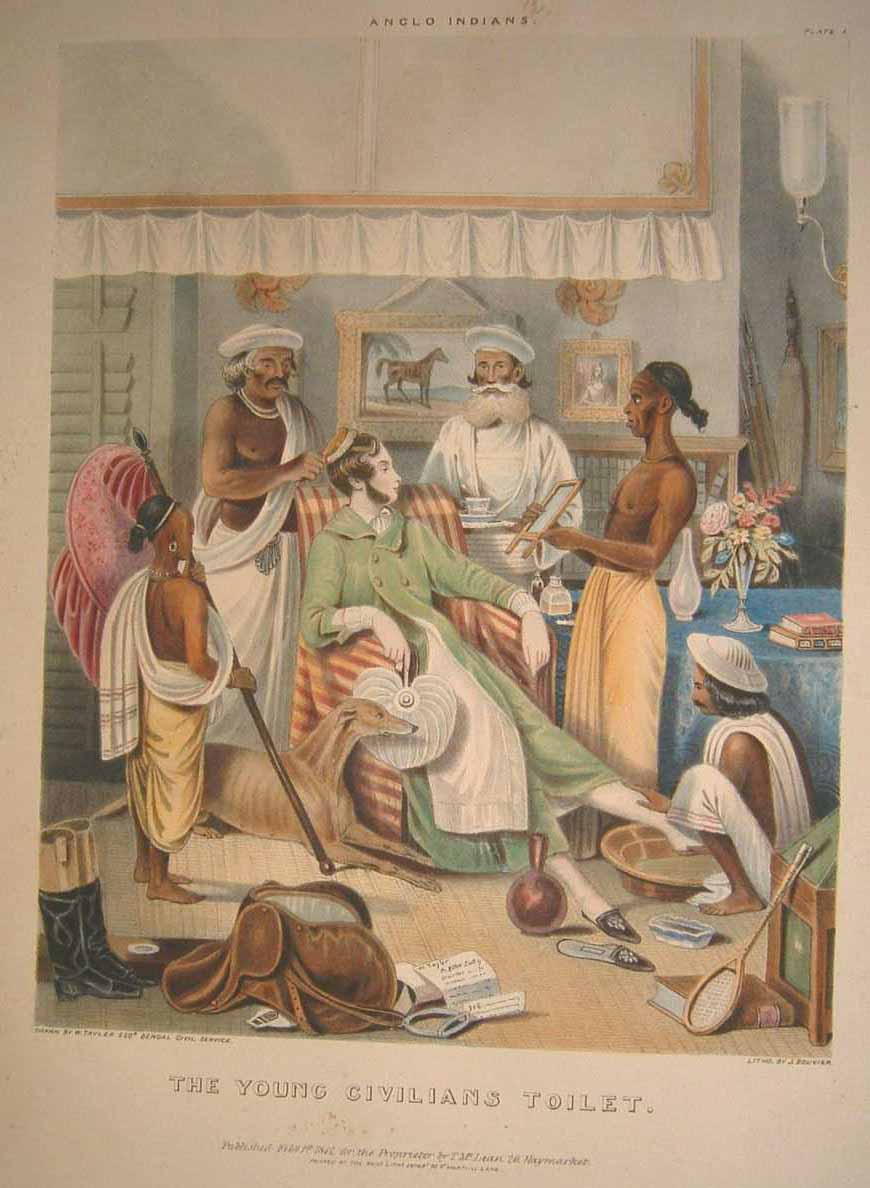FWP:
SETS == DIALOGUE; WORDPLAY
This verse is a one-trick pony, but at least it's a nice trick. For one's 'hands and feet to swell' is, idiomatically, a sign of great happiness (see the definition above), and in the first line we take it in its usual metaphorical sense. In proper mushairah-verse style, the kicker is withheld until the last possible moment: only at the very end of the second line do we realize that what is making the speaker's own hands and feet swell, is the prospect of being able to press on the beloved's feet. Thus we have the two occurrences of 'feet', and above all the enjoyable opposition of 'to swell' versus 'to press down upon'. To touch one's hands to someone's feet is an expression of great respect and/or affection-- and the lover's desperate humility is such that he regards the chance to press the beloved's feet as an amazing joy.
On the double meaning of ;zaraa as both 'a little bit' and 'please', see {177,2}.
ABOUT FOOT-PRESSING:
Traditional South Asians were constantly performing this service
for each other: younger people were supposed to do it to their elders as a sign
of respect and affection, and rich people had servants do it for them. The
pressee usually lay or reclined on a couch or bed, and the presser sat on the foot of the bed
(if an intimate) or squatted beside the bed (if a servant). The action was a
kind of squeezing, pressing, and massaging of the feet, ankles, and legs below
the knees. It feels nice, but probably you have to be a traditional South
Asian to experience the full cultural flavor. Other foot-pressing verses: {121,3}; {121,9x}.
Here's an affectionately satirical print by William Taylor (1842), showing the morning routine of a typical East Indian Company 'civilian' (administrator) in Bengal. Amidst other preparations for the day, he's also having a quick foot-pressing:

And here's the goddess Lakshmi performing the same service for Lord Vishnu:

Nazm:
[He discusses the uses of daabnaa versus dabaanaa .] And in this verse to is redundant [zaa))id]; by redundant is not meant that it's for padding, but rather that in this situation to speak redundantly has entered into the idiom. (217)
== Nazm page 217